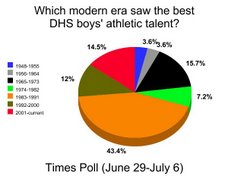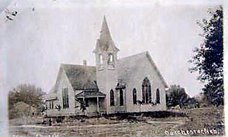 There always seems to be pressure coming down from Lincoln and the State Capitol for small schools to consolidate. We recently found an editorial from The Dorchester Star -- published in the mid-1940s -- blasting state lawmakers and the education commissioner for their suggestions way back then that Nebraska needed fewer school districts.
There always seems to be pressure coming down from Lincoln and the State Capitol for small schools to consolidate. We recently found an editorial from The Dorchester Star -- published in the mid-1940s -- blasting state lawmakers and the education commissioner for their suggestions way back then that Nebraska needed fewer school districts. However, one thing on which most readers (and most Nebraskans) can agree is that a small school education offers several advantages that cannot be duplicated by Class A or B-sized institutions.
Smaller schools know how to educate their students and typically can do it with better results than their larger counterparts.
In a recent report by the Rural School and Community Trust, Lorna Jimerson, Ed.D, offered her top 10 research-based reasons why smaller sized schools work better. The list below was forwarded to us by a loyal reader, and we thought it was important to share it with other readers of the Times.
Residents of the Dorchester Public School district should be encouraged to review the following from time to time:
'Top 10 Reasons Small Schools Work Better'
- There is greater participation in extracurricular activities, which have been linked to academic success.
- Small schools are safer.
- Kids feel they belong.
- Small class size allows more individualized instruction.
- Good teaching methods are easier to implement.
- Teachers feel better about their work.
- Mixed-ability classes avoid condemning some students to low expectations.
- Multi-age classes promote personalized learning and encourage positive social interactions.
- Smaller districts mean less bureaucracy.
- Smaller schools alleviate many problems of transitions to new schools, meaning new students can adjust more easily.

















































Big city liberals in Lincoln and Omaha keep grabbing the state aid money at small town Nebraska's expense. It's gotta end!
ReplyDelete